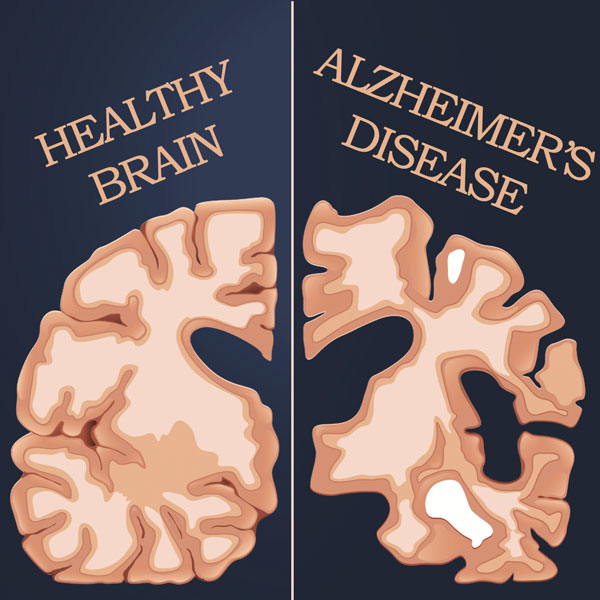In its Winter 2019 magazine, The Fisher Center for ALZHEIMER’S Research Foundation explains that “Older women and men who had the highest levels of heart health were at less risk of developing dementia than those who were less heart healthy…”

A study enlisting more than 6,600 French women and men, mostly in their 70s, seems to underscore this statement. JAMA (Journal of the American Medical Association) released this study while also promoting seven measures from the American Heart Association. Each measure gained by an individual would reduce the risk of development of AD and other forms of dementia by about 10 percent. Here are the measures:
1. Manage blood pressure by keeping BP readings at 120/80 or lower.
2. Control cholesterol with a level below 200.
3. Reduce blood sugar with a fasting count close to or below 100 milligrams per deciliter of blood.
4. Start exercising, if you haven’t already begun. It’s good for the brain, as well as the body.
5. Eat better by eating fish at least 2x weekly and fruits (especially strawberries, raspberries, and blueberries) and vegetables (especially green veggies) at least 3x daily. Other foods helpful here are whole grain breads, nuts, coffee and other caffeine items such as dark chocolate, turmeric, and champagne wine with its good proteins for memory found among its “pinot” grapes.
6. Lose weight, if necessary, to gain a body mass index of 18 to 25.
7. Stop smoking. ***Mental exercises and games, such as brain teasers and crossword puzzles, are promoted for keeping the brain cells functioning as long as possible.
In addition to the above research, the effect of high levels of cortisol (the stress hormone) on memory and brain size was found in another large study published in the Neurology Newsletter. Here researchers looked at 2,231 men and women in their 40s or 50s, free of dementia. Memory and thinking skills’ tests were administered at the beginning of the study and again 8 years later. It was concluded that those with the greater amount of the cortisol hormone had lower scores on the memory/thinking exams than those with normal levels of stress. It was also discovered that the more stressed individuals had slightly smaller brain volumes (found in AD patients). Therefore, the study authors offered these words of wisdom: “It’s important for people to find ways to reduce stress, such as getting enough sleep, engaging in moderate exercise, and incorporating relaxation techniques into their daily lives.”
Next: Part 4: Words of Advice to Caregivers/Current Researched Medicines/Other Technological Aids




